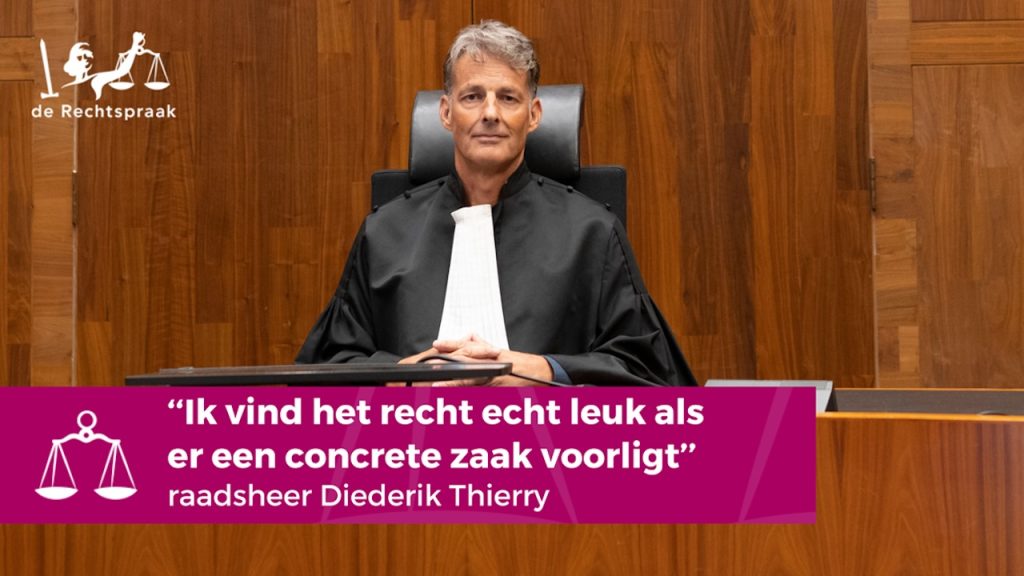
Nearly 2,700 judges deal daily with crimes, divorces, business disputes, neighbor disputes, controversial government decisions and much more. Who are they, what do they go through and how do they see their job? Today: Diederik Thierry, counsel at the Court of Appeal of The Hague, Criminal Law Section.
Counselor Diederik Thierry
'I am Diederik Thierry and work as a counselor in the criminal law department of the Court of Appeal in The Hague. I have been a judge since 2005 and have long handled civil cases in The Hague and St. Maarten. Nowadays I focus mainly on international crimes, a specialty of The Hague. Think of terrorism cases, especially from Syria. But also cases involving returnees or people who have tried to commit an attack in the Netherlands. I also handle international crimes, such as war crimes committed in the past in Rwanda, for example.'
Why did you become a judge?
'Because I like solving a case. Actually, I find law interesting only when a concrete case comes before me. With real facts, not a theoretical possibility that might arise. Moreover, I find hearings important, where the people behind the case become visible. Seeing them, asking questions and hearing what their motivation is, makes the work valuable.'
Which case will you never forget?
'I can't name one specific case, but I can name certain types of cases. For example, cases where people commit criminal acts due to psychosis. They haven't consciously chosen crime, but they have to deal with the consequences. It's intriguing how someone in psychosis sometimes makes choices anyway. What stays with me most of all is what happens to victims and survivors. But also the suspects, who become completely disrupted by a series of events. This is something that could happen to anyone.
When those defendants appeal, some time has often passed. This means that some defendants, for example through treatment at a psychiatric center, have calmed down a bit. They have more awareness of what happened and are therefore better able to reflect. During the session you can therefore have a good conversation more often with a suspect who is now on medication and has more insight into his or her own situation.'
What is the most beautiful aspect of practicing law?
'In criminal law, even if you don't get vindicated, you can understand why you didn't get it. The feeling that you were heard, that your case was treated seriously and that you were given time to tell your story is crucial. I think that's very important. If that succeeds, I am very satisfied with that.
That it does not always work out is not obvious. Victims often find a sentence too low, while defendants find the sentence too high. I am not under the illusion that everyone is ultimately satisfied. When I handled civil cases, we sometimes said: in a good settlement, both parties have a stomach ache. Everyone is happy that the dispute is resolved, even if you had to concede something. In criminal law, that is usually not the case.'

